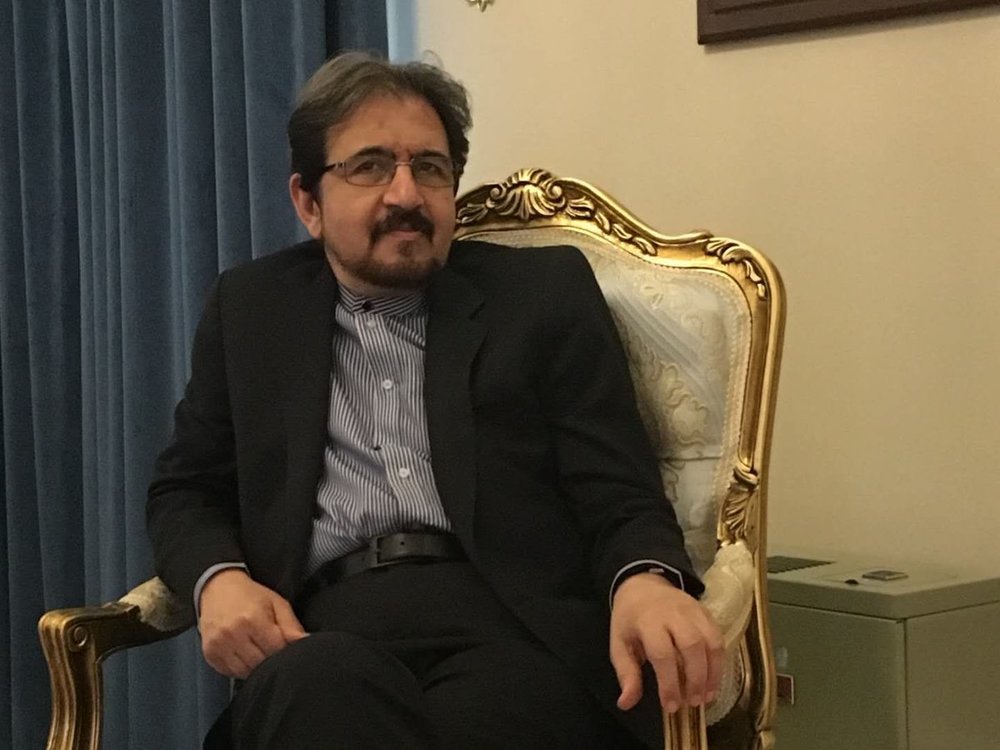Iran’s envoy to France: EU has so far failed to uphold JCPOA commitments

TEHRAN – Bahram Qassemi, Iran’s new ambassador to France, has said that the European Union has so far failed to uphold its side of the Joint Comprehensive Plan of Action (JCPOA).
“The JCPOA was the result of a successful, functional, and effective diplomacy in a highly complicated matter, whose importance to the UN, the EU, and the Security Council is clear as a historic achievement,” Qassemi told a number of political science students in Paris on Saturday.
He expressed regret that with the rise of Donald Trump to power in the U.S., the JCPOA was violated and the U.S. president even threatened other countries to comply.
The ambassador underlined that Tehran expected the European Union to act more swiftly in implementing a special payment system to help keep trade with Iran alive.
“The European parties have so far failed to do what they were expected to under the JCPOA. Their measures will be a very serious and decisive criterion for Iran’s policies,” Qassemi cautioned.
Recently, France reported progress in efforts towards the implementation of a direct payment mechanism, which the European country has launched alongside Britain and Germany to safeguard trade with Iran in the face of U.S. sanctions.
“The work that has been put in place is making positive progress, with a view to an eventual conclusion” of the non-dollar payment system, officially named the Instrument in Support of Trade Exchanges (INSTEX), the French Foreign Ministry announced on April 23.
INSTEX, which was launched in January, has been designed by Paris, Germany and the UK – the three European signatories to the 2015 Iran deal -- to help European companies circumvent the U.S. bans and continue trading with Iran.
In its initial stage, the transactions channel was intended to be used for selling food, medicine and medical devices to Iran, but efforts are underway by the trio to expand INSTEX to cover other areas of trade, including oil sales.
The United States reinstated its sanctions against Iran after leaving the historic multilateral nuclear agreement with Tehran last May. The move, however, drew criticism from the other signatories, which pledged efforts to protect the agreement and keep Tehran in it.
Paris further reiterated its support for the Iran deal. The French statement was issued in response to Washington’s latest moves to put more economic pressure on Iran.
The U.S. reintroduced the anti-Iran sanctions in two bouts. The second one came last November, taking aim at Iran’s banking and energy sector.
Washington, however, granted waivers from the bans to eight major importers of the Iranian oil -- China, India, Japan, South Korea, Taiwan, Turkey, Italy, and Greece -- fearing market instability.
Washington, however, said Monday that it would no longer be extending the waivers and called on the recipients of the crude to stop importing any as of May 2 or face U.S. sanctions.
The ministry, meanwhile, vaguely added that in order for INSTEX to come into force, “Iran must also, for its part, make progress on its equivalent counterparty.”
Tehran has warned the Europeans not to tie any irrelevant issue to their legal financial cooperation with the Islamic Republic.
SP/PA
Leave a Comment